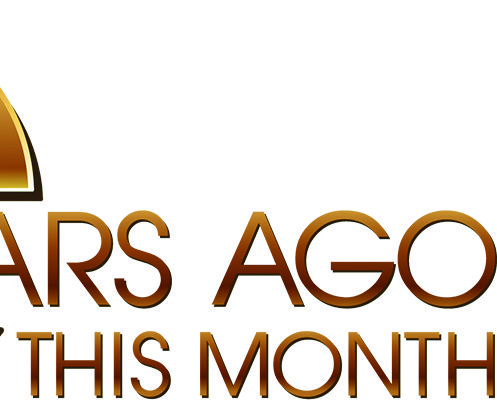The month of February has been home to many historical events over the years. Here’s a look at some that helped to shape the world in February 1925.
After a severe depletion of his country’s potato crop due to heavy rainfall the previous summer and fall, Irish President W.T. Cosgrave appeals to the United States for food aid on February 1.
The small town of Nome, Alaska, is saved from a developing diphtheria epidemic on February 2 upon conclusion of The Serum Run. The run was a transport of diphtheria antitoxin via dog sled that involved 20 mushers and roughly 150 sled dogs. The final leg of the run is led by Gunnar Kaasen and his lead sled dog, Balto, who becomes a canine celebrity as a result of the undertaking.
Sears, Roebuck, & Co. opens its first department store at its headquarters in Chicago on February 2. The retailer had previously been a catalog-only operation.
William Burke Miller interviews trapped cave explorer Floyd Collins on February 3. Collins was trapped in a cave in Kentucky on January 30, and Miller was small enough to climb into an opening in the cave and conduct an interview while hanging upside down. Miller ultimately won a Pulitzer Prize for his coverage of the incident, which unfortunately ended with Collins’ death on February 13.
Ten people are arrested in Russia on February 5 as part of a plot to assassinate revolutionary and Soviet politician Grigory Zinoviev.
World heavyweight boxing champion Jack Dempsey marries actress Estelle Taylor on February 7 in San Diego. The two starred alongside one another on screen and on stage, but ultimately divorced in 1931.
The film “The Lost World” premieres at the Astor Theatre in New York City on February 8. The film is the first production to include special effects.
Ellen Wilkinson, an MP from the Labour Party, defies protocol when she addresses the British House of Commons without wearing a hat on February 11. Conservative MP Reginald Applin asks the Speaker of the House to determine if Wilkinson’s non-compliance with the dress code was in order, but the speaker ultimately rules in Wilkinson’s favor.
Nikolai Golitsyn, the last Prime Minister of Imperial Russia, is arrested by the Russian secret police on February 12. Golitsyn, who was arrested on suspicion of association with counterrevolutionaries, is convicted and executed five months after his arrest.
Paavo Nurmi runs a record-breaking two-mile race in Madison Square Garden on February 14. The Finnish runner, nicknamed the “Flying Finn,” completes the race in eight minutes and 58.2 seconds.
On February 15, the London Zoo announces it will install lights to lift the spirits of the animals during the city’s famed spells of fog.
Bavaria lifts the ban on the Nazi Party on February 16. The ban was initially implemented after the Beer Hall Putsch, a failed coup d’etat orchestrated by Adolf Hitler and others in 1923.
The Mayflower Hotel opens its doors on February 18. The hotel, located at 1127 Connecticut Avenue NW in Washington, D.C., earns the nickname the “Hotel of Presidents” and remains open today.
Fifty-one miners are killed in a coal mine explosion in Sullivan, Indiana, on February 20. An additional 70 employees escape or are rescued from the blast.
American actor Gary Cooper appears in his first film on February 22. Cooper would go on to stardom, even though his appearance in “The Trail Rider” was as an uncredited stunt rider.
The last emperor of China, Puyi, accepts an offer of protection from the Japanese Empire on February 23. Puyi had been stripped of all of his imperial titles and privileges months earlier.
The first electrical recording of a phonographic record is made by Art Gillham on February 25. Gillham and his orchestra use microphones to perform “You May Be Lonesome” and “Hesitation Blues.”
A 6.2 magnitude earthquake strikes in the Canadian province of Quebec on February 28. The epicenter of the earthquake is in the St. Lawrence River near La Malbaie, and no major casualties are reported.





